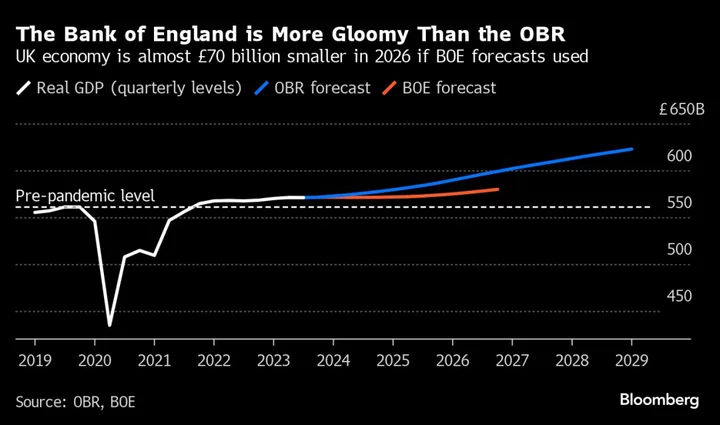
Hunt Would Be Raising UK Taxes Had He Used Gloomy BOE Forecast
UK Chancellor of the Exchequer Jeremy Hunt would have had to raise taxes by as much as £20
1970-01-01 08:00
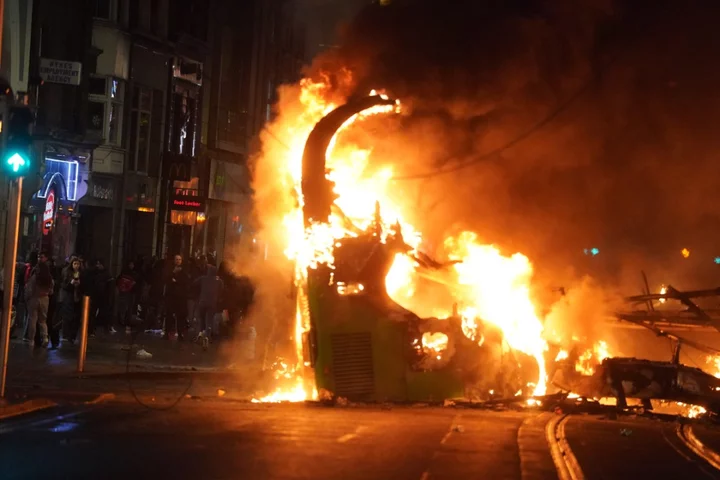
Irish police trawl through 6,000 hours of CCTV footage in Dublin riots probe
Police in Ireland are trawling through 6,000 hours of CCTV footage as a major investigation into riots in Dublin’s city centre continues. The violence in the Irish capital on Thursday – which involved far-right elements and saw Garda cars, buses and trams set alight and shops looted and damaged – flared after a knife attack on three children and their care assistant outside a school in the north inner city. There were a small number of arrests on Friday evening as gardai mounted a significant security operation around the O’Connell Street thoroughfare to avoid a repeat of the violent scenes from the night before. Amid criticism of the Garda response to the riots, government ministers met and heard that legislation to facilitate the use of body-worn cameras by police officers will be fast-tracked. Justice minister Helen McEntee also told colleagues that officers are trawling 6,000 hours of CCTV footage and vowed that further arrests would follow the 34 already made. She also insisted that the police force has all the resources necessary to keep people in Dublin safe over the weekend, including securing the use of two water cannons from the Police Service of Northern Ireland (PSNI). Ms McEntee also rejected a call from Sinn Fein leader Mary Lou McDonald for her and Garda commissioner Drew Harris to resign. She said: “If Sinn Fein wish to debate law and order, if Sinn Fein wish to debate how we can support the gardai, I have no problem in standing over Fine Gael’s record of law and order, Fine Gael’s record of supporting members of An Garda Siochana. “I do not believe Sinn Fein can stand over their record.” Ms McDonald said there had been “an unacceptable, unprecedented collapse in policing” and that a problem leading to Thursday’s riot had been “building for months”. Damage to public infrastructure in Dublin from the disorder could cost tens of millions of euros to repair, Irish premier Leo Varadkar said. He added that the knife attack and the violence which followed had brought “shame on Ireland”. A five-year-old girl injured in the knife attack outside a school remained in a critical condition in hospital on Friday while the female care assistant, in her 30s, was in a serious condition. The two other children, a five-year-old boy and a six-year-old girl, suffered less serious injuries. That girl remained in hospital on Friday but the boy has been discharged. Gardai said a man who sustained serious injuries at the scene is a person of interest in their investigation. Politicians and police have hailed as heroes members of the public who intervened to halt the attacker at the scene on Parnell Square East, including a Brazilian Deliveroo driver. Read More Labour has to be ‘diverse’ to form successful government says Rayner Helpline for the elderly is more important than ever, Dame Esther Rantzen says What the papers say – November 25 Geologist dons trainers for final marathon of 30 before 30 challenge Sharp cut in fuel prices after retailers given ‘good prod’ by regulator, AA says Rwanda plan ‘not the be all and end all’, says James Cleverly
1970-01-01 08:00
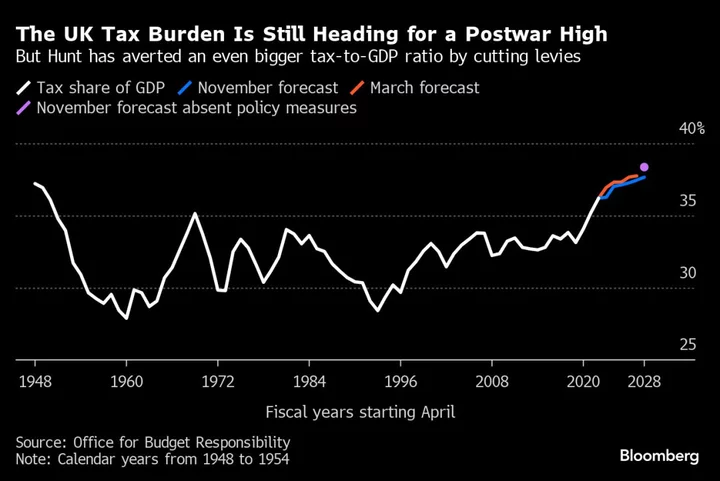
Sunak Eyes More Tax Cuts in Spring as He Weighs UK Election Date
Rishi Sunak is planning to decide on further tax cuts and the date of the next UK general
1970-01-01 08:00
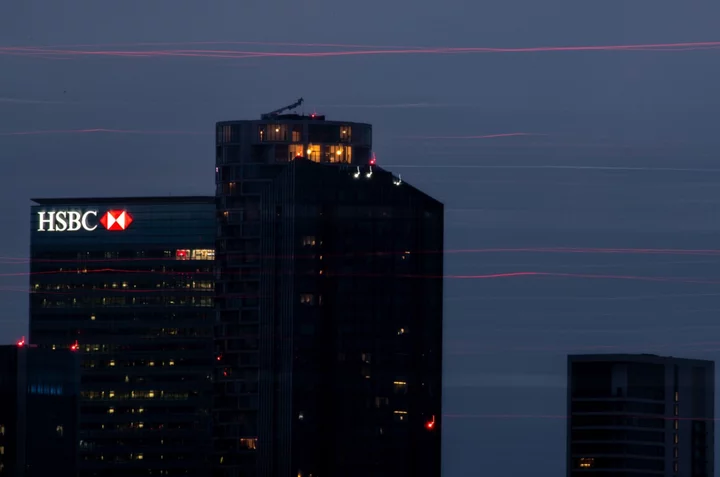
HSBC UK Gets Digital Services Back Up After Black Friday Outage
HSBC Holdings Plc said its UK mobile and digital banking services were getting “back up and running” after
1970-01-01 08:00
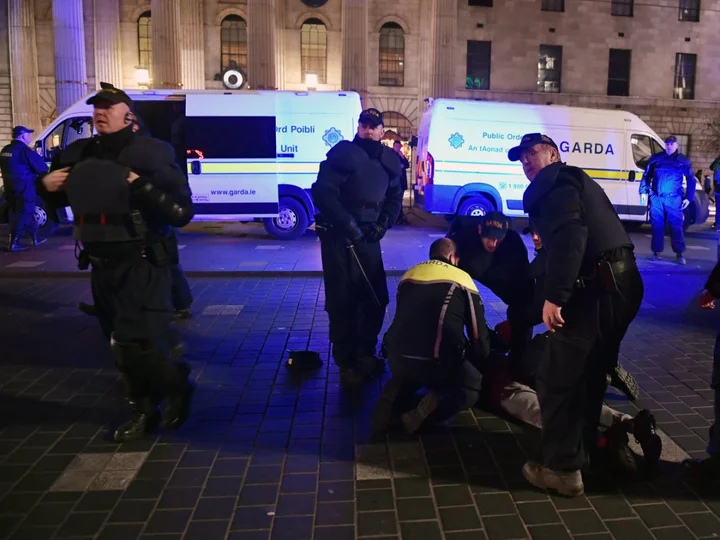
Girl, 5, fighting for her life after Dublin knife attack as far-right hooligans blamed for rioting
A five-year-old girl who was among three children injured in a knife attack in Dublin was fighting for her life on Friday, as the spotlight fell on far-right groups in Ireland following a night of riots in the Irish capital. Police were preparing for a potential second night of disturbances after about 500 far-right sympathisers and apparently angry youths on Thursday went on the rampage, causing damage that could cost tens of millions of euros to repair, according to Irish premier Leo Varadkar. A care assistant was also in a serious condition in hospital after the attack outside a primary school, which some blamed on an immigrant – reports that sparked violence, looting and thuggery. Around a dozen Garda (police) cars were torched, buses and trams were set alight and shops looted and windows smashed. As Dubliners were coming to terms with the violence, police came under fire for how prepared they were. Garda Commissioner Drew Harris blamed the rioting on a “lunatic, hooligan faction driven by a far-right ideology”. Mr Harris, who said some of the 400 officers involved had been injured, one seriously, denied the disturbances were “a failure of personnel”. Asked about his force’s preparedness, he added: “We could not have anticipated that this would have been the reaction.” However, two PSNI water cannons were sent from Northern Ireland to Dublin on Friday to help with policing any further trouble at the weekend. Irish justice minister Helen McEntee said 34 people had been arrested, 32 of whom appeared in court on Friday, and that there would be further arrests. They faced charges relating to the misuse of drugs, theft and public order. But the leader of the main opposition party, Sinn Fein’s Mary Lou McDonald, called on Mr Harris and Ms McEntee to resign, saying gardai lost control of the city to a “mob fuelled by hate”. The violence flared after the attack on schoolchildren and their care assistant outside Gaelscoil Cholaiste Mhuire school at lunchtime on Thursday. A six-year-old girl also injured remained in hospital on Friday, but a five-year-old boy who was wounded was discharged. Mr Varadkar said it was important to back the police force, and Ms McEntee refused to resign, insisting Garda had all the resources necessary to keep people safe in Dublin over the weekend. Gardai were trawling through social media and CCTV footage, she said. And she described a “very volatile situation”, adding: “I have no doubt that many people will be imprisoned after those horrific events yesterday. “What happened yesterday evening following this awful, tragic act was nothing but thuggery. “This was a group of individuals who used this horrendous event as an opportunity to wreak havoc in our city, to sew division in our city, they will be responded to with force and gardai responded in the most appropriate way.” The clean-up was continuing on Dublin’s thoroughfare O’Connell Street on Friday, with burned-out buses lifted away by cranes while broken glass and missiles were cleared. Gardai made several arrests in Dublin city centre amid a significant security operation in the area. Politicians and police hailed as heroes by-standers who intervened to halt the attacker, including a Brazilian Deliveroo driver. Caio Benicio said he saw the man grab a girl and attack her. He said: “When I saw the knife, I stopped my bike and I just acted by instinct.” He said he took his helmet off and hit the man in the head with it “with all of my power”. “Later on I found out (the woman) was the teacher. She was very, very brave.” Gardai said a man seriously injured at the scene was a person of interest in their investigation. Ms McDonald said she had no confidence in Ms McEntee or Mr Harris, that there had been an “unacceptable, unprecedented collapse in policing” and that a problem had been “building for months”. “I do not say the following lightly, but it must be said. I have no confidence in how Dublin is being policed,” she said. “This shouldn’t have happened and – let me be very clear – it can never happen again.” However, Mr Varadkar said the rioters “brought shame on Dublin, brought shame on Ireland and brought shame on their families and themselves”. “These criminals did not do what they did because they love Ireland. They did not do what they did because they wanted to protect Irish people. They did not do it out of any sense of patriotism, however warped. “They did so because they’re filled with hate, they love violence, they love chaos and they love causing pain to others.” Ireland does not have a track record of strong far-right support. Various factors led to Thursday’s violence, according to Kevin Doyle, head of news at the Irish Independent – with a homelessness crisis and a steady growth in numbers of migrants helping to feed a growing far-right narrative that “Ireland is full”. “A group of people that arrived at the scene of the attack were chanting things like ‘get them out’,” he told The Independent. “At one point they broke through the Garda cordon. The people supposedly outraged about the attack actually impeded the investigation.” Mr Doyle added: “People are worried about it [far-right support] now. It’s definitely a minority but it’s a minority that has caused millions of damage. Tensions are high.” The unrest follows two high-profile crimes that rocked Ireland – Aidan Moffitt and Michael Snee, who were found murdered in their homes in Sligo, and schoolteacher Ashling Murphy, who was stabbed while out jogging in Tullamore, Co Offaly. Last week her killer, Jozef Puska, 33, a Slovakian, was jailed for life. In his victim impact statement, Ms Murphy’s devastated partner Ryan Casey alluded to some of the tensions facing Irish society as he pointed out her unemployed killer had benefited from social housing and welfare for 10 years. “I feel like this country is no longer the country that Ashling and I grew up in and has officially lost its innocence when a crime of this magnitude can be perpetrated in broad daylight,” he said. Earlier this year, a Travelodge in north Dublin housing asylum-seekers became the focus of right-wing protests. In September, crowds of far-right supporters protested outside Dublin’s parliament building. Wendy Via, president of the Global Project Against Hate & Extremism, said the country was part of a global trend in growing right-wing sentiment. “In Ireland, its largely anti-immigrant sentiment driving it,” she told The Independent, adding: “You have to keep your eye on the fringe.” “People claim this attacker is a certain race or ethnicity and it was driven by XYZ and it just spreads and it is very inflammatory. They will co-opt another issue to legitimise themselves and unfortunately sometimes you get what you got last night, which was arson, damage and injuries.” UK Northern Ireland Secretary Chris Heaton-Harris said the scenes showed society needed “a proper debate" about “migration, immigration, what we need in skills and how we treat people and what pressures it brings to our domestic services”. Read More Boris Johnson claims anti-Brexit campaigners having ‘orgasm’ over migration figures Garda have ‘all resources necessary’ to keep people safe following Dublin riots Boris Johnson links Dublin ‘race riots’ to immigration fears Narrative of extremism must be challenged, Scottish First Minister says Irish government challenge to UK legacy laws would not derail relations – Gove Riot damage could cost tens of millions of euros, Leo Varadkar says
1970-01-01 08:00
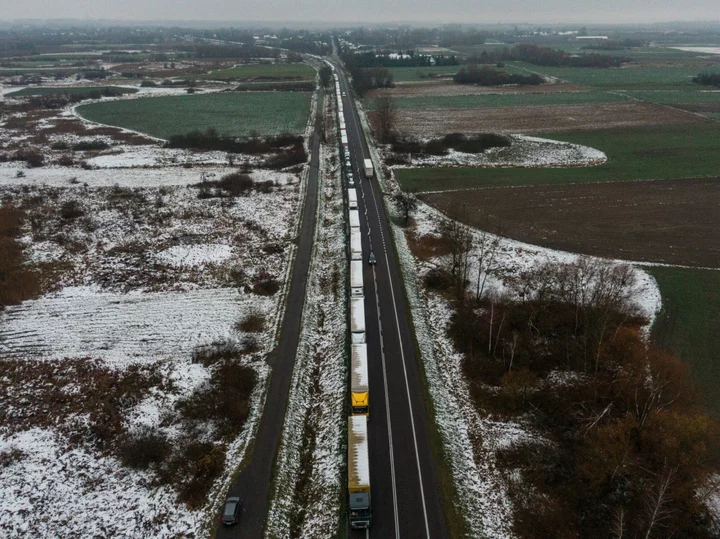
Ukraine Says Poland Doing Nothing as Trucks Pile Up at Border
A senior Ukrainian official accused Polish authorities of inaction as blockades staged by protesting truckers at the border
1970-01-01 08:00
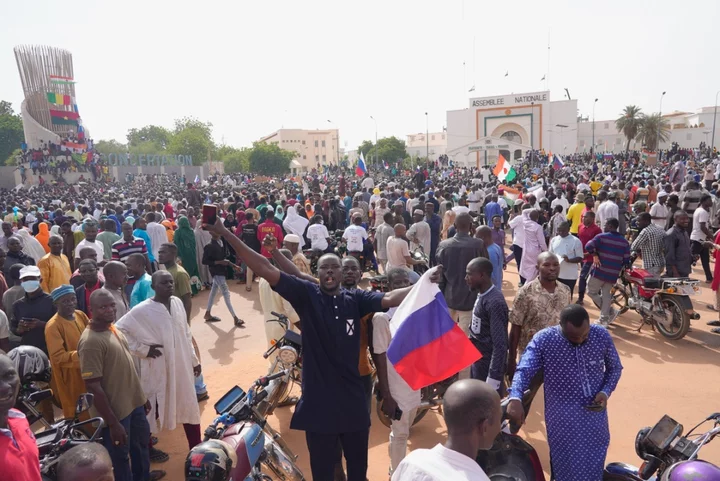
A newly formed alliance between coup-hit countries in Africa’s Sahel is seen as tool for legitimacy
Three West African nations led by military juntas met this week to strengthen a newly formed alliance described by some analysts on Friday as an attempt to legitimize their military governments amid coup-related sanctions and strained relations with neighbors. In his first foreign trip since the July coup that brought him into power, Niger’s junta leader, Gen. Abdourahmane Tchiani held separate meetings Thursday with his Mali and Burkina Faso counterparts. During their meetings, the leaders pledged security and political collaborations under the Alliance of Sahel States (AES), a partnership the three countries announced in September as a measure to help fight the extremist violence they each struggle with and across the Sahel, the vast arid expanse south of the Sahara Desert. The alliance provides a “path of sovereignty” for the countries and for their citizens, Gen. Tchiani told reporters after his meeting with Malian leader Col. Assimi Goita. “Through this alliance, the peoples of the Sahel affirm that … nothing will prevent them from the objective of making this area of ​​the Sahel, not an area of ​​insecurity, but an area of ​​prosperity,” Tchiani said. In reality, though, the partnership "is in part an effort to entrench and legitimize (their) military governments” more than to tackle the violent extremism which they have limited capacity to fight, said Nate Allen, an associate professor at the Africa Center for Strategic Studies. The violence across the Sahel has contributed to a recent surge of coups in the region and militaries that claimed they took over power to help tackle their country's security challenges have struggled to do so. On Thursday, Gen. Tchiani partly blamed the violence on foreign powers, repeating claims his government has often made against France — which had been influential in the three countries before being forced out after their militaries took over — and against West Africa’s regional bloc of ECOWAS, which has heavily sanctioned Niger as a measure to reverse the surge of coups in the region. The new partnership also offers the military governments of Mali, Burkina Faso and Niger an opportunity "to say, ‘we are not internationally isolated and we actually have partners that share our ideology and philosophy’,” said James Barnett, a researcher specializing in West Africa at the U.S.-based Hudson Institute. Some analysts, however, believe that by pooling their resources together, those countries are able to reduce individual reliance on foreign countries and tackle the security challenge with one front. “The merit of this new alliance, despite its limited means and capabilities, lies in its initiation by concerned members," said Bedr Issa, an independent analyst who researches the conflict in the Sahel. "Its long-term success depends both on the resources that member countries can mobilize and the support that Africans and the broader international community could provide,” he added. In the Malian capital of Bamako, 35-year-old Aissata Sanogo expressed hope that such a partnership could be useful. “It’s important that we take charge of our own security,” said Sanogo. “That’s what I’m expecting from this alliance.” ____ Associated Press journalist Baba Ahmed in Bamako, Mali, contributed to this report. ____ Follow AP’s Africa coverage at: https://apnews.com/hub/africa Read More Victims in Niagara Falls border bridge crash identified as Western New York couple Mexico's arrest of cartel security boss who attacked army families' complex was likely personal Argentina and Brazil charged by FIFA after fan violence delays World Cup qualifying game at Maracana Germany's economy shrank, and it's facing a spending crisis that's spreading more gloom NOT REAL NEWS: A look at what didn't happen this week Putin to boost AI work in Russia to fight a Western monopoly he says is 'unacceptable and dangerous'
1970-01-01 08:00

Unit of Benko’s Signa Prime Files for Insolvency, Spiegel Says
A unit of Signa Prime Selection AG filed for insolvency in a Berlin court on Friday, Der Spiegel
1970-01-01 08:00
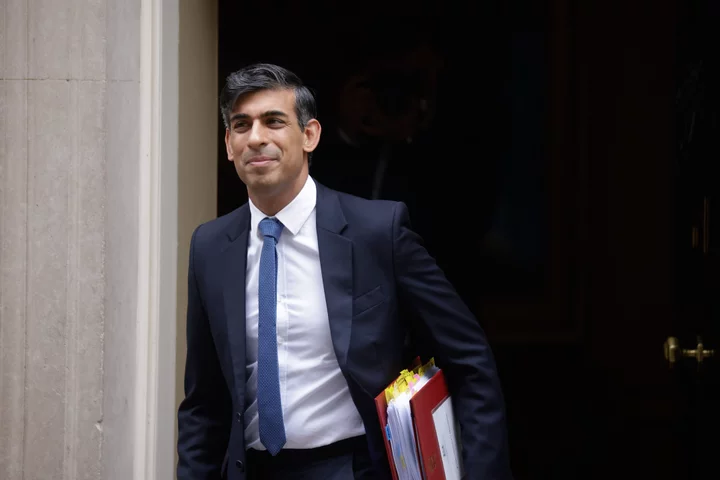
Sunak Will Pledge UK Support for New Climate Damage Fund at COP28
The UK plans to announce its support for a new fund that helps vulnerable countries cope with the
1970-01-01 08:00
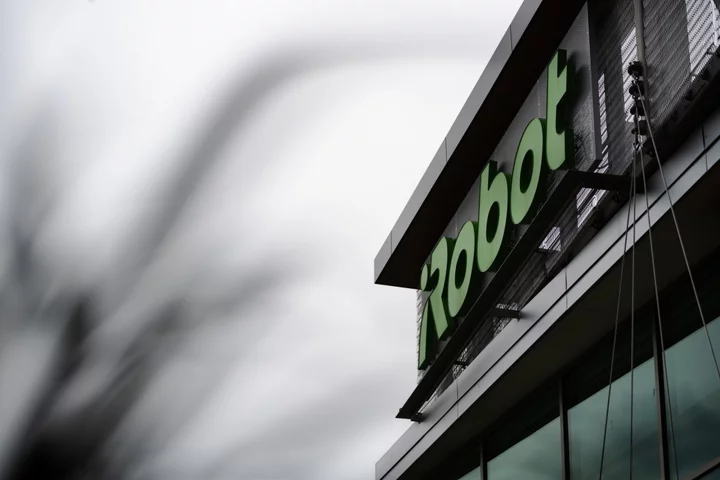
Roomba Maker iRobot Soars on Report Amazon Deal Will Win EU Clearance
iRobot Corp., the vacuum-cleaner maker that Amazon.com Inc. is proposing to buy in a billion-dollar deal, soared by
1970-01-01 08:00
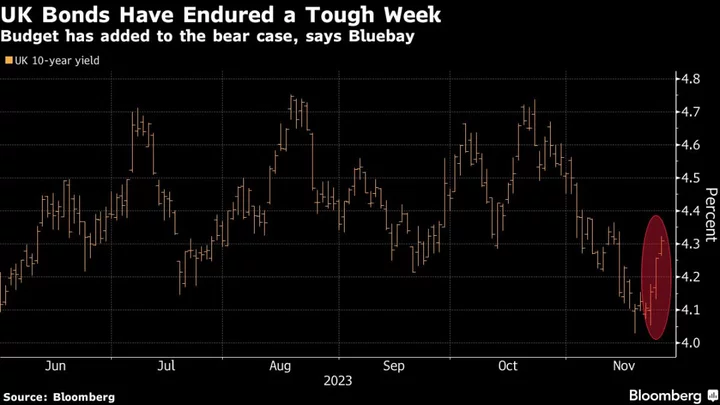
UK Budget Adds to Bear Case for Gilts, Says BlueBay’s Dowding
The UK’s budgetary largesse has bolstered the bear case for gilts, which are already under pressure from sticky
1970-01-01 08:00
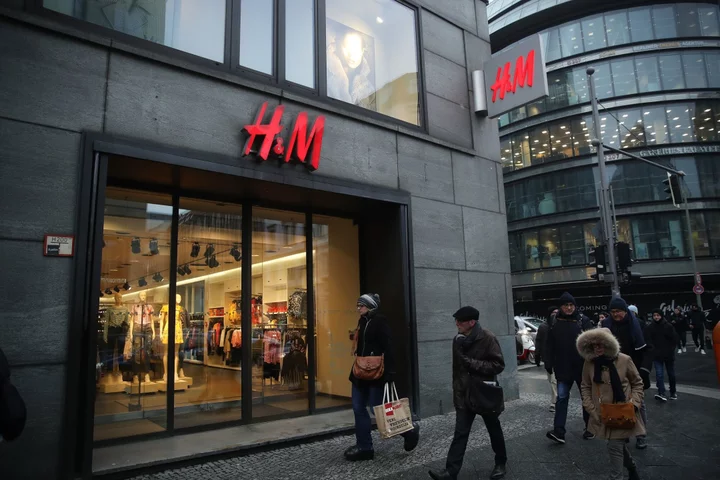
H&M Shoppers to Pay More as Bangladesh Wages Rise After Protests
Hennes & Mauritz AB has pledged to offset higher worker wages in Bangladesh by raising prices for clothing
1970-01-01 08:00
